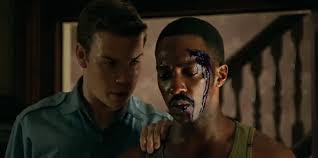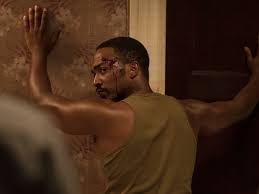
‘Detroit’ - Bigelow falters with omission of black women
by Hussain Kalvert August 5 2017, 10:01 pm Estimated Reading Time: 2 mins, 47 secs‘Detroit’ – is the directors first movie since ‘Zero Dark Thirty’ which was a multiple Oscar nominee. This movie is the re telling of the horrific 1967 Detroit riots which were also known as the 12th Street Riots, and which were easily one of the deadliest 5 days of riots America has ever seen over the course of its history.

‘A black mother grieving for her slain child’, is an image, horrifyingly abundant in America. This is so because when black men and boys are victimised, it is most often their mothers who stand up for them and try to challenge the legal system which has failed them. This is an unsung tradition which includes brave women like Rebecca, the mother of Aubrey Pollard, who was one of the three black males that were murdered at the Algiers Motel during the 1967 Detroit riot. Also, it was the face Rebecca Pollard which was one the front page of the Chicago Tribune on June 11, 1969, who was seen leaving the courtroom after an all-white jury dismissed the charges of murder against Detroit Police officer Ronald August, and found him innocent in the murder of her son Aubrey. It is incidents like these that make it shocking how Bigelow could omit black women when attempting to retell this incident. It is in this respect that the film’s title is misleading and does not portray what one might come to expect from the title alone.

However, Kathryn Bigelow’s film focuses on a particular incident well chronicled in John Hershey’s book “The Algiers Motel Incident”. This book is an account of the series of events that took place on the third night of the riot at ‘The Algiers’ motel. Reports of a sniper at the motel led The National Guard, the Detroit Police Department, Michigan State Police as well as a private security guard (played by John Boyega), to the motel and led to the torture and murder of seven black men and two white women.
Hershey, in 1968, during the trial of the three police officers who were involved in the shootings at the motel, wrote the ‘The Algiers Motel Incident’. During this time, he interviewed, victim’s family members, survivors, and also some law enforcement officials. Now if we believe that Bigelow’s film is based on this source material, then the accusations about the omission of black women from film’s narrative stand false, as there were no black women involved in the actual events at the Algiers.
The problem however, is that Bigelow’s film, as scripted by Mark Boal, is not an adaptation, as the rights to ‘The Algiers Motel Incident’, have never been up for sale as per Hershey’s directive. Thereby, ‘Detroit’ can be said to be a fictional representation of the Algiers incident as gathered from interviews and various source materials. Bigelow, is not at fault to approach this story as a white woman at least when it comes to the Algiers incident, however if this film is meant to make a political statement, it lets down. Overall, a great piece work, when narrating incidents from a single night of horror but not doing justice to the very sad happenings on the whole.




-173X130.jpg)
-173X130.jpg)
-173X130.jpg)
-173X130.jpg)



